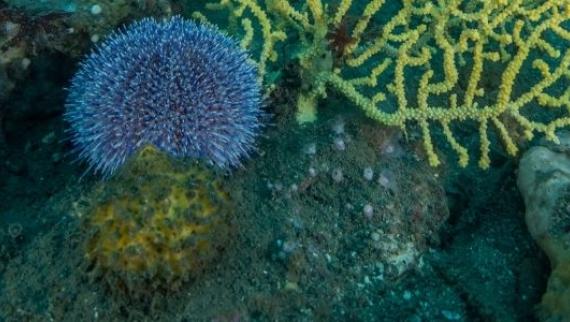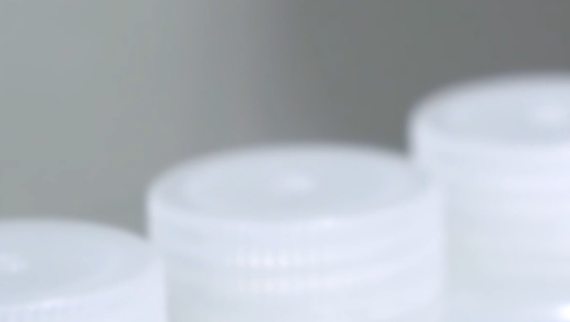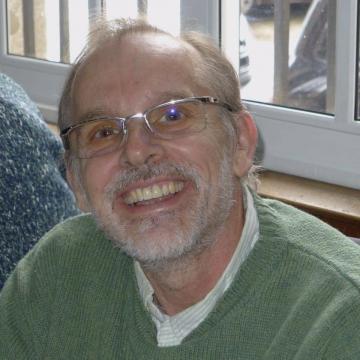Immunology & Genomics
Gaining a deeper insight into the processes related to marine life diseases, immune systems and gene expression is essential to develop a more sustainable and profitable aquaculture sector.
In addition, it can provide society with a large body of key knowledge and technology that can even be relevant for human health.
The studies carried out by the IIM-CSIC’s Immunology & Genomics group focus on the molecular basis for the immune response against pathogens in aquaculture fish and molluscs, their transcriptomics and proteomics, paying special attention to innate immune responses in these organisms and their potential biotechnological applications in animal and human health, as well as in process optimization in aquaculture.
The group seeks to identify genes that can be used as biomarkers in genetic selection processes and to improve the immune response by using immunostimulants and vaccines. They focus on key mechanisms of the innate immune response, such as antimicrobial peptides (AMPs), cytokine-based inflammatory processes or antiviral and antibacterial activities, employing immunological, microbiological, molecular biology and protein biochemistry techniques. The use of zebrafish (Danio rerio) for the study of both fish and human diseases is also one of the main features of the group's research work.
Together with other scientific and technological services (see below), the group is in charge of the National Reference Laboratory for Mollusc Diseases (LNREMB), which performs its tasks within this research group. In 2011, it was accredited to the ISO 17025 standard for different diagnostic techniques for mollusc pathogens. This service is accountable to the Spanish Ministry of Agriculture, Fisheries and Food (Ministerio de Agricultura, Pesca y Alimentación, MAPA).
- GENMARA -
<p>Programa Ciencias Mariñas: Xenómica marina aplicada a acuicultura</p>
Principal investigator:NovoaGarcíaBeatrizFunding body:El Programa de Ciencias Mariñas de Galicia es 1 de los 5 programas de Ciencias Marinas de los Planes Complementarios de I+D+I del Plan de Recuperación Transformación y Resilencia. Financiado por FEMP/FEMPA.Funding for IIM-CSIC:89541€Go to project pageFromto - GENMARP -
<p>Programa Ciencias Mariñas: Xenómica marina do plancto</p>
Principal investigator:NovoaGarcíaBeatrizFunding body:El Programa de Ciencias Mariñas de Galicia es 1 de los 5 programas de Ciencias Marinas de los Planes Complementarios de I+D+I con las CCAA del Plan de Recuperación Transformación y Resilencia (NextGenerationEU).Funding for IIM-CSIC:19550€Go to project pageFromto - METDISHFISH -
<p>Terapias metabólicas para el tratamiento de enfermedades infecciosas en peces de cultivo</p>
Principal investigator:NovoaGarcíaBeatrizFunding body:Ayuda cofinanciada por el Fondo Europeo Marítimo y de Pesca y el Ministerio de Agricultura, Pesca y Alimentación.Funding for IIM-CSIC:324175€Go to project pageFromto - IMANREFIVIR -
<p>IMMUNE ANTIVIRAL RESPONSE OF FISH AGAINST RNA VIRUSES</p>
Principal investigator:NovoaGarcíaBeatrizFunding body:Proyecto PID2020-119532RB-I00 financiado por MCIN/ AEI /10.13039/501100011033Funding for IIM-CSIC:160000€Go to project pageFromto - DIMCOVAR -
<p>Detección, infección y modelización de SARS-CoV-2 mediante analisis en estaciones depuradoras de aguas residuales y bioindicadores marinos</p>
Principal investigator:FiguerasHuertaAntonioFunding body:Fundación Banco SantanderFunding for IIM-CSIC:107000€Go to project pageFromto
- Lama, R.; Pereiro, P.; Figueras, A.; Novoa, B. (2022) Zebrafish as a Vertebrate Model for Studying Nodavirus Infections Frontiers in Immunology DOI:10.3389/fimmu.2022.863096
- Azeredo, R.; Machado, M.; Pereiro, P.; Barany, A.; Mancera, J.M.; Costas, B. (2022) Acute Inflammation Induces Neuroendocrine and Opioid Receptor Genes Responses in the Seabass Dicentrarchus labrax Brain Biology DOI:10.3390/biology11030364
- Sendra, M.; Pereiro, P.; Yeste, M.P.; Novoa, B.; Figueras, A. (2022) Surgical face masks as a source of emergent pollutants in aquatic systems: Analysis of their degradation product effects in Danio rerio through RNA-Seq. Journal of Hazardous Materials DOI:10.1016/j.jhazmat.2021.128186
- Ríos-Castro, R.; Aranguren, R.; Romero, A.; Banchi, E.; Pallavicini, A.; Novoa, B.; Figueras, A. (2022) Assessment of the environmental distribution of the protozoan parasite Perkinsus olseni by next-generation sequencing, qPCR and histopathology allows the identification of alternative bivalve hosts Aquaculture DOI:10.1016/j.aquaculture.2022.737984
- Bello-Perez M; Adamek M; Coll J; Figueras A; Novoa B; Falco A (2021) Modulation of the Tissue Expression Pattern of Zebrafish CRP-Like Molecules Suggests a Relevant Antiviral Role in Fish Skin Biology DOI:10.3390/biology10020078
- PhD - Magalí Rey Campos (01/10/2021) Variability and function of immune genes in the mussel Mytilus galloprovincialis Universidade de Santiago de Compostela (usc)
- PhD - Margarita Álvarez Rodríguez (18/06/2021) Antiviral immune response of zebrafish (Danio rerio) against the Spring Viraemia of Carp Virus (SVCV) Universidade de Vigo (UVIGO)
- PhD - Raquel Lama López (30/04/2021) Search for new strategies for controlling viral diseases in aquaculture UNIVERSIDAD DE SANTIAGO DE COMPOSTELA
- TFG - Ángel Rúa Cañadas (15/07/2019) Estudio y deteccion de parasitos en las especies de bivalvos de interes comercial Mytilus galloprovincialis y Ruditapes philippinarum en la Ría de Vigo Univerdidad de Vigo (UVigo)
- TFM - David Ferreiro García (05/07/2019) Caracterización de la proteína MgTX1 en mejillón mediterráneo (Mytilus galloprovincialis) Univerdidad de Vigo (UVigo)
- Capabilities | Biodiversity AssessmentMarine instruments & sensors Coastal & Environmental Protection Maritime Spatial Planning Ecosystem Services & Governance
Monitoring temporal and spatial distribution of species, abundance and biomass from several taxa using different techniques such as e-DNA, pigment characterization, flow cytometry, acoustic telemetry, images collected from remote observation systems (i.e. drones, etc.) or classic taxonomic identification.
- Capabilities | Development of “in vitro” bioactivity tests for biomolecules using cell lines and specific gene expression tests
Development of techniques (metabolomics, proteomics, genomics, lipidomics, biomarkers) to characterize the response of cells to different biomolecules and to validate their activity and safety.
- Capabilities | Development of management and decision-making tools based on modeling and simulated scenariosCoastal & Environmental Protection Maritime Spatial Planning Ecosystem Services & Governance Aquaculture Fisheries
Development of space-specific tools for assessment, management and decision-making by modeling the impacts of present and possible future environmental scenarios (pollution, climate change, etc.) on oceanographic conditions, biodiversity distribution, physiological response or fisheries and aquaculture performance.
- Capabilities | Development and optimization of aquaculture systems for traditional and new farmed species
Development of integrated culture techniques for new aquaculture species, as well as optimization of traditional ones based on different approaches (i.e. early development, handling, feeding, disease and immune responses, ecophysiological performance, or ecosystem carrying capacity) to improve animal welfare, yield and sustainability in global marine aquaculture.
- Capabilities | Prospection of new bioactive compounds
Prospection of new bioactive compounds in marine organisms and food industry by-products, including characterization of their activity and validation of their application in different sectors (health, cosmetics, nutrition, etc.).























